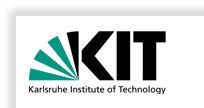| Prerequisites | None. |
| Description | The students should learn the essential scientific and practical principles of Marketing, especially branding. Branding consists of any name, design, style, words or symbols, singly or in any combination that distinguish one product from another in the eyes of the consumer. Brand positioning, brand loyalty and brand equity are discussed as important elements of a management concept. The focus of the course is not limited to short-term ROI, but also long-term benefits of communication strategies facing company's responsibilities to all of its stakeholders, e.g. consumers, investors and public. The strategies and techniques in branding are broaden by several case studies. English as an international technical language in marketing is practiced with course readings and scientific papers. Content: The course brand management starts with the development of the corporate objectives as the heart of the brand planning process followed by definitions of brand. Setting up on the psychological and social bases of consumer behavior, aspects of an integrated marketing communication are discussed. The students should acquire the particular value of branding strategies. The concept of brand personality is considered in two perspectives, from a practical point of view and the challenging position of the theoretical construct. Methods for the measurement of a consumer-based brand equity are compared with the financial valuation of the brand. The information provided by this equity measurements are related to the equity drivers in brand management. The marketers perspective will be accomplish with the analysis of several case studies. Within the limits of a knowledge based system for advertising evaluation many of the issues accomplished in the course are summarized. At the same time it is discussed as a tool to use marketing knowledge systematically. |
| Bibliography |
|
| Content of teaching | The students should learn the essential scientific and practical principles of Marketing, especially branding. Branding consists of any name, design, style, words or symbols, singly or in any combination that distinguish one product from another in the eyes of the consumer. Brand positioning, brand loyalty and brand equity are discussed as important elements of a management concept. The focus of the course is not limited to short-term ROI, but also long-term benefits of communication strategies facing company's responsibilities to all of its stakeholders, e.g. consumers, investors and public. The strategies and techniques in branding are broaden by several case studies. English as an international technical language in marketing is practiced with course readings and scientific papers. Content: The course brand management starts with the development of the corporate objectives as the heart of the brand planning process followed by definitions of brand. Setting up on the psychological and social bases of consumer behavior, aspects of an integrated marketing communication are discussed. The students should acquire the particular value of branding strategies. The concept of brand personality is considered in two perspectives, from a practical point of view and the challenging position of the theoretical construct. Methods for the measurement of a consumer-based brand equity are compared with the financial valuation of the brand. The information provided by this equity measurements are related to the equity drivers in brand management. The marketers perspective will be accomplish with the analysis of several case studies. Within the limits of a knowledge based system for advertising evaluation many of the issues accomplished in the course are summarized. At the same time it is discussed as a tool to use marketing knowledge systematically. |
| Entryrequirements | None. |
| Annotation | Please note that this lecture is offered for the last time in winter term 2016/17. |
| Workload | The total workload for this course is approximately 135 hours (4.5 credits). |
| Aim | Students have learned the following outcomes and competences:
|
| Exam description | The assessment consists of a written exam (60 minutes) (following §4(2), 1 of the examination regulation). The exam is offered in winter term 2016/17 for the last time. Exclusively for students who took the exam for the first time in winter term 2016/17 and need to retake the exam, a re-examination will be offered in summer term 2017 if required. Winter term 2016/17 is the last re-examination possibility for all students who took the exam for the first time in a previous semester. |
Brand Management
| type: | Vorlesung (V) | ||
|---|---|---|---|
| semester: | WS 16/17 | ||
| time: | 2016-10-17 15:45 - 17:15 wöchentlich 20.30 SR 2.59 20.30 Kollegiengebäude Mathematik, Englerstr. 2 2016-10-24 15:45 - 17:15 wöchentlich 20.30 SR 2.59 20.30 Kollegiengebäude Mathematik, Englerstr. 2 2016-10-31 15:45 - 17:15 wöchentlich 20.30 SR 2.59 20.30 Kollegiengebäude Mathematik, Englerstr. 2 2016-11-07 15:45 - 17:15 wöchentlich 20.30 SR 2.59 20.30 Kollegiengebäude Mathematik, Englerstr. 2 2016-11-14 15:45 - 17:15 wöchentlich 20.30 SR 2.59 20.30 Kollegiengebäude Mathematik, Englerstr. 2 2016-11-21 15:45 - 17:15 wöchentlich 20.30 SR 2.59 20.30 Kollegiengebäude Mathematik, Englerstr. 2 2016-11-28 15:45 - 17:15 wöchentlich 20.30 SR 2.59 20.30 Kollegiengebäude Mathematik, Englerstr. 2 2016-12-05 15:45 - 17:15 wöchentlich 20.30 SR 2.59 20.30 Kollegiengebäude Mathematik, Englerstr. 2 2016-12-12 15:45 - 17:15 wöchentlich 20.30 SR 2.59 20.30 Kollegiengebäude Mathematik, Englerstr. 2 2016-12-19 15:45 - 17:15 wöchentlich 20.30 SR 2.59 20.30 Kollegiengebäude Mathematik, Englerstr. 2 2017-01-09 15:45 - 17:15 wöchentlich 20.30 SR 2.59 20.30 Kollegiengebäude Mathematik, Englerstr. 2 2017-01-16 15:45 - 17:15 wöchentlich 20.30 SR 2.59 20.30 Kollegiengebäude Mathematik, Englerstr. 2 2017-01-23 15:45 - 17:15 wöchentlich 20.30 SR 2.59 20.30 Kollegiengebäude Mathematik, Englerstr. 2 2017-01-30 15:45 - 17:15 wöchentlich 20.30 SR 2.59 20.30 Kollegiengebäude Mathematik, Englerstr. 2 2017-02-06 15:45 - 17:15 wöchentlich 20.30 SR 2.59 20.30 Kollegiengebäude Mathematik, Englerstr. 2 |
||
| lecturer: | Prof.Dr. Bruno Neibecker | ||
| sws: | 2 | ||
| lv-no.: | <a target="lvn" href="https://campus.studium.kit.edu/events/xqP3U9OFQEy8skVrtafFtQ">2572177</a> | ||


